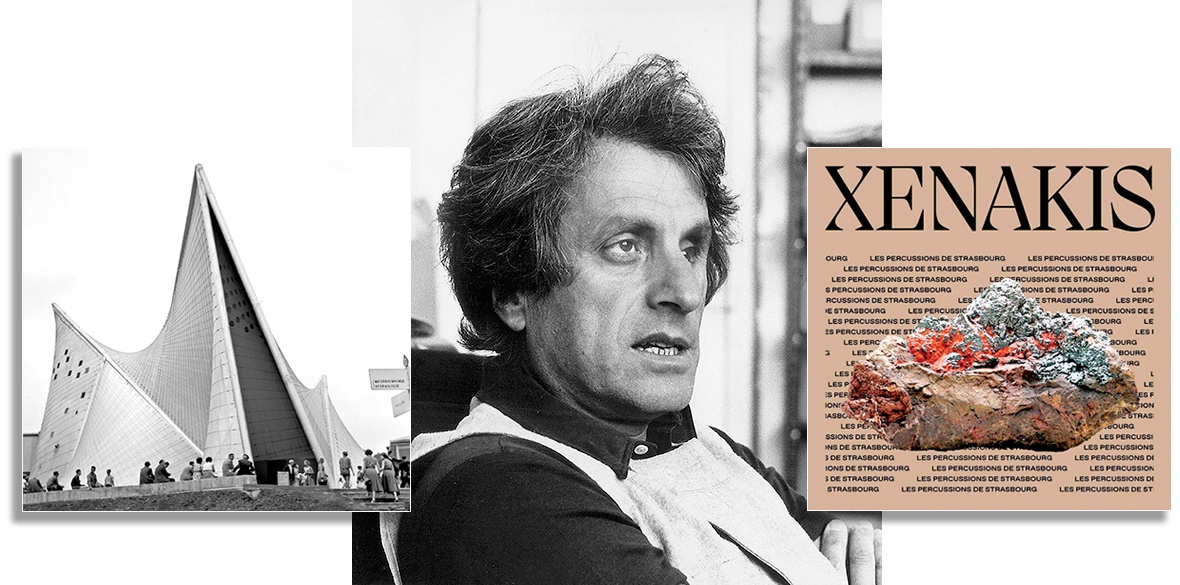This is the last article you can read this month
You can read more article this month
You can read more articles this month
Sorry your limit is up for this month
Reset on:
Please help support the Morning Star by subscribing here
Pleiades and Persephassa
Percussions de Strasbourg
Philips — Prospective 21e Siecle
THERE are two great composers-in-exile whose music defines their national culture. One is Chopin who lived in France in the 19th century and wrote for his then-extinguished country, Poland.
The other is Xenakis who also lived in France as an illegal immigrant in the 20th century, having been made the target of British-led anti-communist assassination by the Greek far right in 1947.
A qualified engineer, he became a lead architect for Le Corbusier, who had no qualms about employing immigrants because he could take the credit and pay low wages.
He took the credit, for example, for Xenakis’s ground-breaking designs for the revolutionary Philips Pavilion at the 1958 World Fair, as well as the famous convent of Sainte Marie de La Tourette, near Lyon.
Throughout this period, the 1950s, Xenakis designed by day and composed by night, allowing the two disciplines of architecture and music to infiltrate one another.
By the time he quit architecture (in disgust at Corbusier’s treatment of workers) he had devised a unique method of composition and stood in the forefront of the European avant-garde.
Although you wouldn’t know it from this year’s Edinburgh Festival programme, 2022 is the centenary of his birth (May 22 1922) and a great moment to reckon with his achievement.
To me, Xenakis is much more than the foremost pioneer of electronic music, site specific music events, and the democratisation of the orchestra, where each instrument holds its own as a solo voice in a massive, multipatterned cosmos of sound.
He is always thrilling in a visceral way, creating an experience that is not just from the unknown future, but rooted in the unknown past.
Such is the radical innovation of his work that without his guidance it is hard to be sure that the music is doing what he intended it to, but with the group Percussions de Strasbourg (PdeS), itself 60 years old this year, there are three generations of musicians who have a direct connection to Xenakis himself.
He esteemed them, and he wrote for them.
And for an introduction to this remarkable body of work, PdeS’s new recordings of five compositions, Pleiades and Persephassa are the place to start.
Xenakis is very disciplined in his approach to this kind of instrumentation: he explores the sonic and rhythmic possibilities of “skin” (like a language of thunder-gods), of “metal” (like dwarf-genius hammering out the shield of Achilles) and “clavier” (like the helter-skelter pitter patter of a disassembled piano), and then brings them together in a mix that is complex as a galaxy, and yet graspable.
He uses the ensemble in such an expressive and compelling way that I defy anyone to hear percussion in the same way again.
This is true Greek culture rendered with magnificent musicianship.
Don’t miss.









